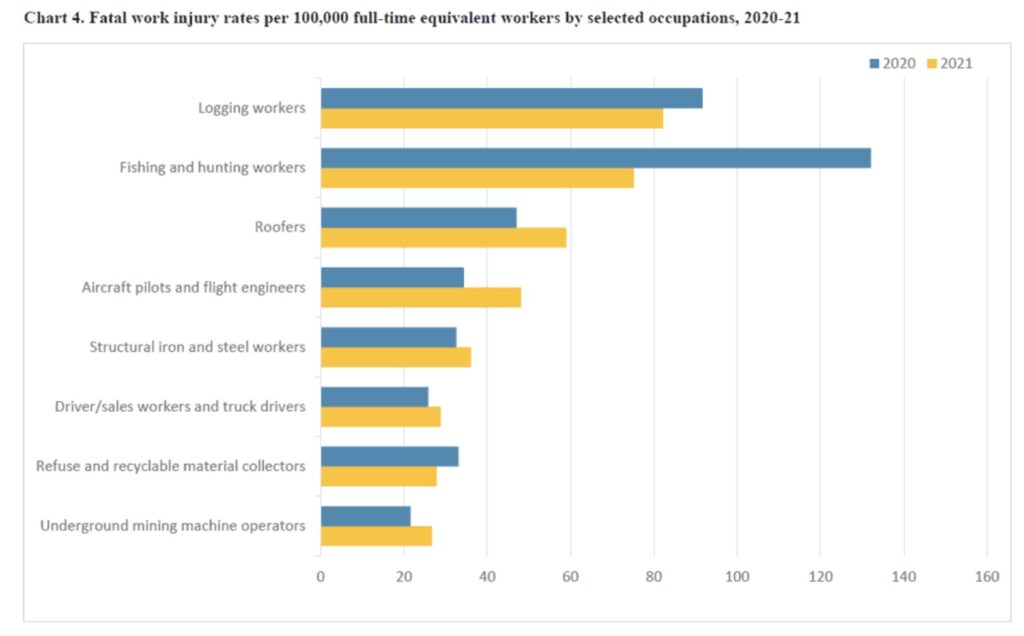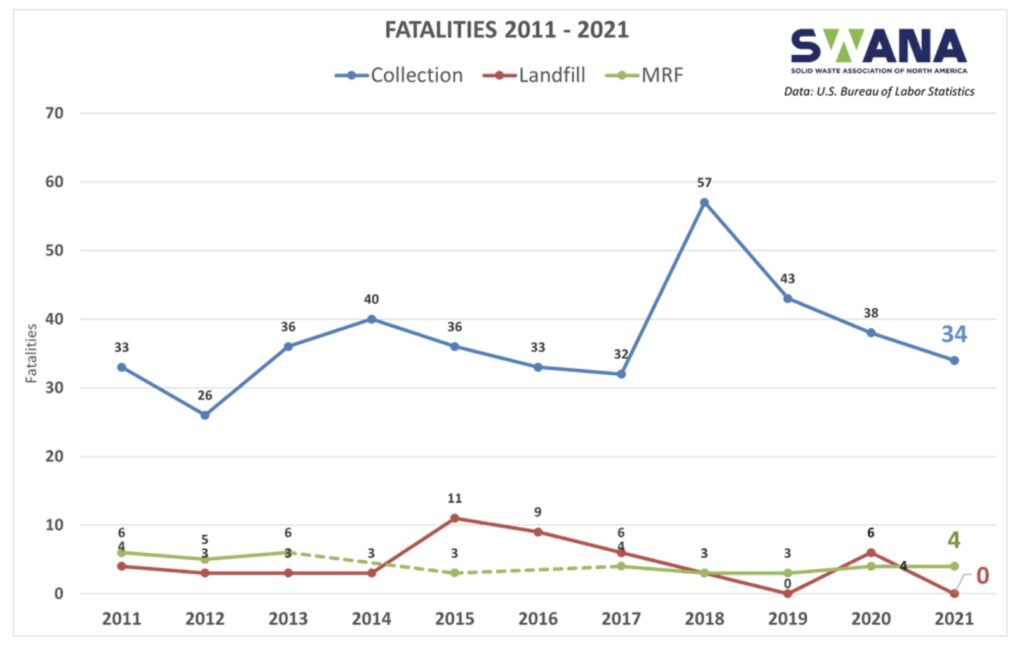The US Department of Labor’s Bureau of Labor Statistics (BLS) released its 2021 National Census of Fatal Occupational Injuries showing refuse and recyclable materials collection was the seventh-deadliest job that year, down from sixth in 2020. The workplace fatality rate for this group was 27.9 fatal work injuries per 100,000 full-time equivalent (FTE) workers in 2021 compared to 33.1 in 2020.
This reduction in worker fatalities is consistent with SWANA’s 2021 report that showed a significant decline compared to 2020. The BLS 2021 Survey of Occupational Injuries and Illnesses (SOII) released in November also reported historically low injury and illness rates for collection, landfill, and MRF workers. SWANA’s data for 2022 is indicating a return to higher levels of worker fatalities, suggesting that the drop in 2021 might be an aberration due to the pandemic. SWANA will issue a report on 2022 industry fatalities in early 2023, which will look at both worker and third party deaths involving solid waste.
“Although we are pleased by the industry’s improvement last year, being the seventh deadliest occupation in the United States is nothing to brag about,” stated David Biderman, SWANA Executive Director & CEO. “The uptick in fatal incidents in 2022 suggests that SWANA’s focus on safety as part of its new Forward Together Strategic Plan is both timely and necessary. Nothing we do at SWANA is more important that making sure the hard-working men and women in this great industry go home to their loved ones at the end of the day.”

Solid waste collection (NAICS 562111) saw further reductions in workplace fatalities falling to 34 reported in 2021 compared to 38 in 2020. This continues a downward trend from a high of 57 in 2018. Fatalities among workers at material recovery facilities (NAICS 562920) remained steady at four reported in 2021. No solid waste landfill worker (NAICS 562212) fatalities were reported in 2021 by BLS, but SWANA is aware of at least five collection and other types of workers who died at landfills last year.

“While the trend was pointing downward during 2021, it is clear from current evidence in 2022, we have much work to do fall out of the top 10 most dangerous industries,” said Suzanne Sturgeon, SWANA’s National Safety Committee Chair and SCS Engineers Safety Manager. “From my perspective, situational awareness is the key element to getting our workers home to their families unharmed. This, followed by good communication by decision makers with those who work in the field, is essential to their understanding of expectations for how they conduct themselves while working.”
Across all workplaces, there were 5,190 fatal work injuries recorded in the United States in 2021, an 8.9-percent increase from 4,764 in 2020. The fatal work injury rate was 3.6 fatalities per 100,000 FTE, the highest annual rate since 2016. Transportation incidents remained the most frequent type of fatal event in 2021 with 1,982 fatal injuries, an increase of 11.5 percent from 2020.
SWANA held its annual Safety Summit last week at WASTECON in California. The Safety Summit was very well-attended and numerous industry leaders discussed best practices and technologies that can help improve safety in the solid waste industry. SWANA will hold a Safety Summit at WASTECON 2023 in Boston on September 27–29.
